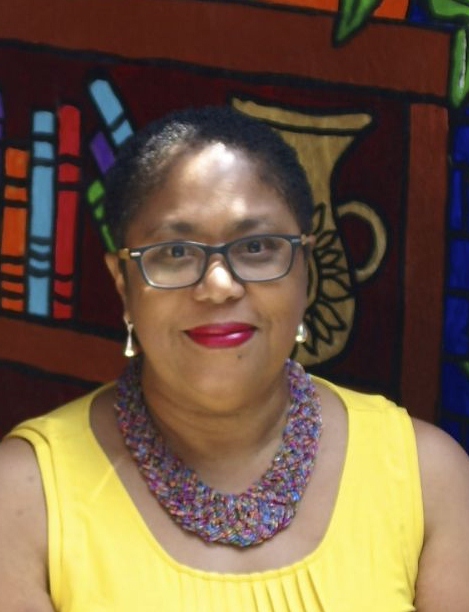Dahlma Llanos-Figueroa is a novelist, memoirist, and short story writer whose work is grounded in the Puerto Rican communities on the island and in New York City. Her novel Daughters of the Stone (Thomas Dunne Books, 2009) was shortlisted for the 2010 PEN America Award and has been included in Breaking Ground/Habriendo Caminos, an Anthology of Puerto Rican Women Writers in New York 1980-2012 (Editorial Campana, 2012). She was a 2006–7 Bronx Council on the Arts Literary Fellow and is a three-time BRIO/ACE award winner. She is currently at work on a second novel titled People of Endurance. P&W has supported Llanos-Figueroa as both a reader at La Casa Azul bookstore and workshop leader with DeAlmas Women’s Collective, both in New York City.
 How does giving a public reading inform your writing?
How does giving a public reading inform your writing?
When I sit down and write my novels, I am creating a monologue. Only when I go out and share my words with readers am I participating in a dialogue. I get as much as I give. The audience welcomes my reaching out to them. They know I value their questions, suggestions, and ideas. Even small turnouts can be valuable in unexpected ways. They provide an intimacy that allows for each attendee to interact with me on a personal level, often expressing opinions that would never surface before a larger audience.
What are your reading dos?
I try to tailor my presentation to the needs and experiences of the audience. My novel spans the entire voyage of Afro-Puerto Ricans from Africa to Puerto Rico to New York City, as told through the lives of the women in one family. In East Harlem, I often choose an excerpt set there or a chapter on migration to a new city. In Puerto Rico, I choose chapters set there during colonial times. In high schools, I select excerpts that focus on parent/child relationships.
…and your reading don’ts?
I never cut off a question or response. No matter how much I agree or disagree, I give the speaker the space to express him/herself. I hope that the reader enjoyed my work, but if they didn’t, they are entitled to their point of view. And I might even learn something new.
What’s your writing critique philosophy?
When teaching, I tend to ask questions rather than make pronouncements. I believe by asking a question, you invite the writer to reconsider rather than defend. “How can this emotion be communicated in the character’s body language?” is better than “Show don’t tell!”
How do you get shy writers to open up?
Breaking up into small groups allows for a more personal, less threatening experience. I recently took a workshop with Cristina Garcia and loved the way she broke us up into groups of four. After each critiquing session, the groups rotated, allowing for each writer to get critiques from everyone. Getting feedback from three people at a time is better than sitting through twelve critiques that often get repetitive and feel like badgering. It’s a time consuming process, but well worth it. Also, you can always do an in-class small group critique, and then have the rest of the feedback in writing.
A safe, welcoming environment makes my job as a workshop leader much easier. In my P&W–supported workshop for the DeAlmas Women’s Collective, a group focused on women’s spiritual and emotional well-being, the intimate workshop space was set up with lighting, music, candles, and incense. The focus was on finding the story within, and the participants were asked to bring images significant to them. We created a Sacred Journal, and used meditation techniques and visual prompts to tap into memories, which yielded some outstanding memoir pieces. Because the group members were comfortable with the environment and each other, the sharing came easily.
What do you consider to be the value of literary programs in the community?
I have heard people in the industry justify the lack of Latino books being promoted by saying that Latinos don’t read. I wish they could see the crowds of readers who come from all over the city to attend literary events at La Casa Azul, the only Latino bookstore in East Harlem. My P&W–supported reading was standing-room-only. People in the community are thirsty for literature that reflects their reality and grateful to authors, who respect them enough to read there.
Photo: Dahlma Llanos-Figueroa. Credit: Orlando Gonzalez.
Support for Readings/Workshops in New York City is provided, in part, by public funds from the New York State Council on the Arts and the New York City Department of Cultural Affairs, with additional support from the Louis & Anne Abrons Foundation, the Axe-Houghton Foundation, The Cowles Charitable Trust, the Abbey K. Starr Charitable Trust, and the Friends of Poets & Writers.






